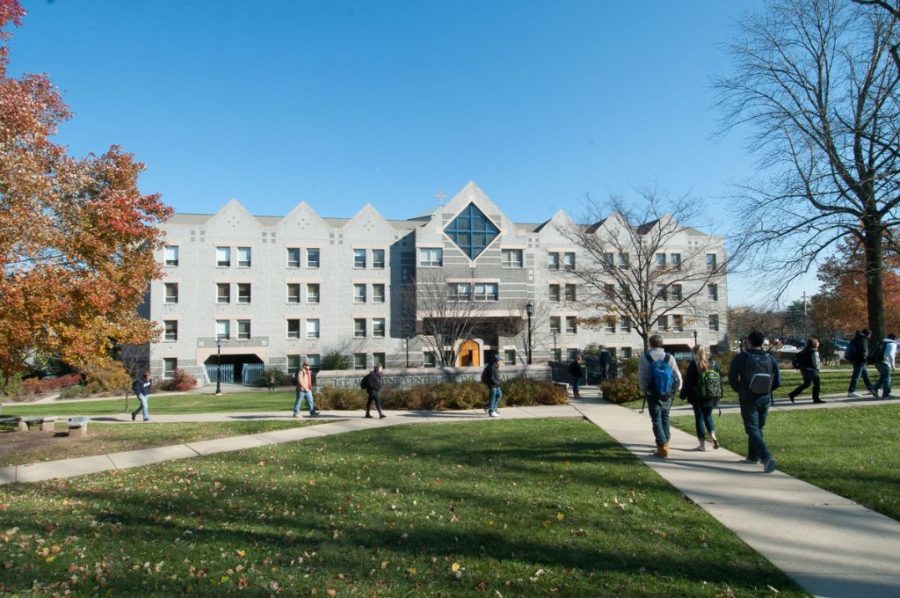Taking Liberal Arts Classes as a STEM Major
The St. Augustine Cultural center played host to third-generation Tibetan refugee, Dr. Ugyan Choedup, who shared his research in the nationalism and modernization of the Tibetan world
November 16, 2022
I have heard many different tunes concerning the importance of a liberal arts education. Some argue that it allows for a well-rounded education. Other proponents of the liberal arts offer that it helps to prevent burnout, as a student does not devote all of their time and energy to a singular subject. Many more believe that it helps students to simply think for themselves.
However, every semester when registration rolls around, any positives are drowned out by the grumbles from my fellow liberal arts peers. It can make things a little annoying when picking courses begins to feel more like a to-do list, as students have to incorporate classes and requirements in fields in which they may have zero interest.
It can be difficult to see clearly through the noise of so many cheers and jeers and take a holistic look at the merit of a liberal arts education. Throughout my early journey at Villanova, my relationship with the liberal arts education has been indicative of this debate.
As a science major in CLAS, I have found that many of us share the same lament over the requirements that come with a liberal arts education. It seems that, in general, science majors enrolled in a liberal arts education at Villanova have a more difficult time fulfilling the requirements of the liberal arts education than arts majors.
Many of my friends in the arts are able to fulfill requirements like core social science, history, literature and writing seminars or diversity as a part of their majors. On the other hand, one would be hard-pressed to find a class in the sciences that does the same so easily. Arts majors at Villanova have to fulfill their science requirements outside of their majors as well as others, but I would still argue that the uneven distribution of requirements and the lack of availability to fulfill them in different majors present a problem in liberal arts education.
On the other hand, I think core requirements provide a more seamless transition from high school to college for incoming freshmen, as the multiple-subject approach allows for some level of familiarity.
I actually do not appreciate the division of focus that comes with having classes and homework for multiple subjects. Having to devote time and energy to other subjects that are less applicable to one’s career can cause great frustration and contribute to burnout.
The absolute greatest praise I have for the liberal arts education is that it has allowed me to find my passions in different areas of life outside of my major. I have always enjoyed learning, but I had never seen myself as a creative writer. It was only in taking my ACS classes and my core literature and writing seminar that I realized this love.
I felt almost giddy at times writing papers, albeit at 3 a.m. like any good science major, typing away in Google Docs as I felt my thoughts bleed out of my brain onto the screen. I investigated the work of Dante and Oscar Wilde, an atypical experiment that could not possibly happen in the test tubes and beakers to which I am accustomed.
My experience with these classes has driven me to write more and in different forms. I have continued to write for The Villanovan, submitted my work to literary magazines and reviews and have even embarked on personal creative writing projects in my free time.
I offer my experience but realize that it is definitely different from others. Some may be thanking their lucky stars day in and day out for their liberal arts education, while others probably abhor having to fit such classes into their schedule.
As registration has come and gone once again and stress levels have returned to a comfortable medium, I hope that my peers in CLAS are able to look at their schedules with something less than disdain.
Even though I feel some of the frustrations that can come with the requirements and structure of a liberal arts education, I would ultimately argue that having to sprinkle in a social science or MSE does not spell the end of times. In fact, such a class might awaken a dormant passion inside of you. And if not, hopefully you will at least be able to quote something smart-sounding from Tolstoy at a dinner party.


